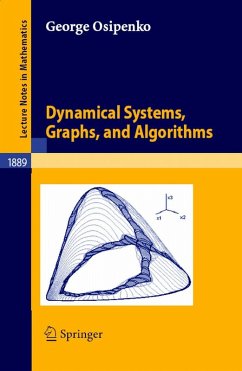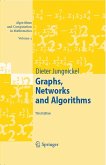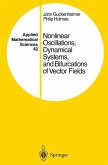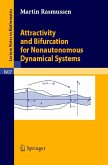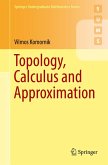This book describes a family of algorithms for studying the global structure of systems. By a finite covering of the phase space we construct a directed graph with vertices corresponding to cells of the covering and edges corresponding to admissible transitions. The method is used, among other things, to locate the periodic orbits and the chain recurrent set, to construct the attractors and their basins, to estimate the entropy, and more.
Dieser Download kann aus rechtlichen Gründen nur mit Rechnungsadresse in A, B, BG, CY, CZ, D, DK, EW, E, FIN, F, GR, HR, H, IRL, I, LT, L, LR, M, NL, PL, P, R, S, SLO, SK ausgeliefert werden.
From the reviews:
"This book provides a taster for using symbolic analysis, graph theory, and set-oriented methods in a quest to understand the global structure of the dynamics in a continuous- or discrete-time system. In many ways, the techniques discussed here are complementary to more traditional ways of analysing a dynamical system and as such, this book can be viewed as a valuable entry into the theory and computational methods. ... The book is intended for postgraduate researchers ... ." (Hinke M. Osinga, Mathematical Reviews, Issue 2008 i)
"This monograph contains a summary of the author's work on constructive methods for the study of discrete dynamical systems. ... The structure of the book is very clear with 14 chapters devoted to different dynamical objects such as chain recurrent sets, structural stability or invariant manifolds, followed by two examples: the Ikeda mapping and a discrete food-chain model. ... is certainly a valuable and very readable reference, in particular for the study of low-dimensional concrete systems with complicated dynamics." (Jörg Härterich, Zentralblatt MATH, Vol. 1130 (8), 2008)
"This book provides a taster for using symbolic analysis, graph theory, and set-oriented methods in a quest to understand the global structure of the dynamics in a continuous- or discrete-time system. In many ways, the techniques discussed here are complementary to more traditional ways of analysing a dynamical system and as such, this book can be viewed as a valuable entry into the theory and computational methods. ... The book is intended for postgraduate researchers ... ." (Hinke M. Osinga, Mathematical Reviews, Issue 2008 i)
"This monograph contains a summary of the author's work on constructive methods for the study of discrete dynamical systems. ... The structure of the book is very clear with 14 chapters devoted to different dynamical objects such as chain recurrent sets, structural stability or invariant manifolds, followed by two examples: the Ikeda mapping and a discrete food-chain model. ... is certainly a valuable and very readable reference, in particular for the study of low-dimensional concrete systems with complicated dynamics." (Jörg Härterich, Zentralblatt MATH, Vol. 1130 (8), 2008)

